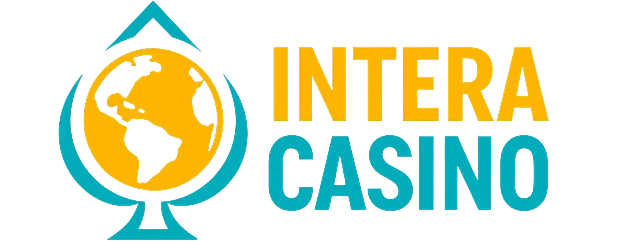At InteraCasino, we believe online gambling should be an enjoyable and entertaining activity for adults in Canada. As an independent resource providing casino reviews, guides, and information, we are dedicated to promoting responsible gambling practices. This page offers guidance on recognizing potential issues, using available tools, and accessing support, with a focus on Canadian resources. If you or someone you know is struggling, remember that help is available and seeking it is a sign of strength.
What Is Responsible Gambling?
Responsible gambling means engaging in gaming activities in a controlled way that minimizes harm. It involves setting personal boundaries on time and money spent, understanding the odds (where the house typically has an edge), and treating gambling as entertainment rather than a way to make money or escape problems. In Canada, where online gambling is regulated provincially (e.g., fully legal in Ontario through iGaming Ontario but restricted elsewhere), responsible practices help ensure it remains fun and safe.
Our Commitment to Safer Gambling
InteraCasino.com is committed to transparency and player safety. We include responsible gambling details in our casino reviews, highlighting tools like deposit limits and self-exclusion options. We partner only with licensed operators adhering to Canadian standards, such as those from the Alcohol and Gaming Commission of Ontario (AGCO) or Kahnawake Gaming Commission. Our goal is to empower you with accurate information to make informed decisions.
Signs of Problem Gambling
Problem gambling occurs when gaming behavior leads to negative consequences but continues regardless. Here are common signs to watch for:
- Spending more time or money on gambling than you can afford, leading to financial strain.
- Chasing losses by betting more to recover money, often worsening the situation.
- Feeling anxious, irritable, or restless when not gambling or trying to cut back.
- Hiding gambling activities or lying to loved ones about time/money spent.
- Using gambling to cope with stress, anxiety, depression, or other life issues.
- Neglecting work, family, relationships, or hobbies due to gambling.
- Borrowing money, selling items, or committing dishonest acts to fund gambling.
If any of these resonate, consider taking a self-assessment quiz, such as those from the Responsible Gambling Council (RGC) or Centre for Addiction and Mental Health (CAMH). Early recognition can prevent escalation.
Risk Factors for Gambling Addiction
Certain factors increase the likelihood of developing a gambling problem, including:
- Frequent exposure to gambling ads or easy access to online platforms.
- A history of mental health issues like anxiety or depression.
- Stressful life events, leading to gambling as an escape.
- Genetic predisposition or family history of addiction.
- Starting gambling at a young age or chasing the “high” from wins.
In Canada, statistics show about 2% of adults aged 15+ face gambling issues, with 19.3 million active online gamblers in 2024 (per industry reports). Men (63%) and women (57%) report monthly spending, highlighting the need for vigilance.
Tips for Staying Safe While Gambling Online
To keep gambling enjoyable:
- Set strict budgets and timelines before you start, limit what you can afford to lose.
- Take regular breaks to maintain perspective; use reality checks to track session time.
- Play at licensed Canadian casinos with robust responsible gambling features.
- Avoid gambling when upset, stressed, or under the influence.
- Balance gaming with other activities like exercise, socializing, or hobbies.
- Opt for low-stakes games to extend play without high risk.
- Never chase defeats, but accept them as part of the game.
Remember the golden rule: Never gamble with money you can’t afford to lose.
Responsible Gambling Tools
Reputable online casinos offer tools to help manage your play, often mandated by Canadian regulators:
- Deposit Limits: Cap daily, weekly, or monthly deposits to control spending.
- Session/Time Limits: Restrict gaming time to prevent extended sessions.
- Loss Limits: Set a maximum loss amount before access is blocked.
- Reality Checks: Pop-up reminders of time spent and money wagered.
- Cool-Off Periods: Temporary breaks from 24 hours to several weeks.
- Self-Exclusion: Block access for 6 months to 5 years (or indefinitely); in Ontario, use iGaming Ontario’s self-exclusion program for province-wide coverage.
- Transaction History: Review past activity to monitor patterns.
- Payment Blocks: Contact your bank to restrict gambling transactions.
For broader protection, tools like Gamban can block access to gambling sites across devices.
Supporting a Loved One with Gambling Issues
If someone close to you shows signs of problem gambling:
- Approach the conversation with empathy and without judgment—listen actively.
- Encourage professional help, like counseling or support groups.
- Set boundaries to protect your own well-being, such as not lending money.
- Educate yourself on resources and offer to accompany them to meetings.
- Monitor for secondary effects like financial strain or emotional distress.
What to Do If You Need Help
Admitting a problem is the first step. Options include:
- Self-assess using free online tools from RGC or CAMH.
- Use casino tools for immediate limits or exclusions.
- Seek counseling through helplines or in-person services.
- Join support groups for shared experiences.
Canadian Resources and Helplines
Canada offers province-specific and national support:
- Responsible Gambling Council (RGC): Non-profit providing education, helplines, and tools. Visit responsiblegambling.org or call 1-888-391-1111 (Ontario).
- Centre for Addiction and Mental Health (CAMH): Offers treatment programs and resources. Visit www.camh.ca or call 1-800-463-2338.
- ConnexOntario: 24/7 helpline for Ontario residents. Call 1-866-531-2600 or visit connexontario.ca.
- Gamblers Anonymous Canada: Peer support meetings nationwide. Visit gamblersanonymous.org or find local meetings.
- Alberta Health Services Addiction Helpline: 24/7 support for Alberta. Call 1-866-332-2322.
- Canadian Centre on Substance Use and Addiction (CCSA): Research and guidelines. Visit ccsa.ca.
- Problem Gambling Helpline (National): 1-800-522-4700 for general support.
For provincial specifics, check your local gaming authority (e.g., AGCO in Ontario).
Preventing Underage Gambling
Gambling is illegal for those under 19 (or 18 in some provinces). To protect minors:
- Use parental controls and website blockers on devices.
- Discuss the risks of gambling and how it works.
- Avoid leaving gambling accounts logged in or saving payment details.
- Set family rules for internet and device use, including supervision.
- Licensed casinos require age verification (KYC) to prevent underage access.

